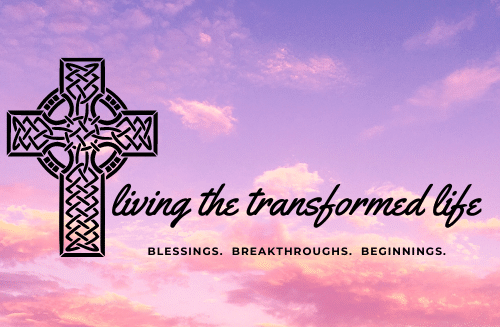 You’ve Been Hurt By The Church. What’s Next?
You’ve Been Hurt By The Church. What’s Next?
Church hurt happens. Maybe it’s happened to you. Spiritual abuse can lead you to feeling stunned, overwhelmed, confused and uncertain. What do you do when you’ve been victimized by spiritual leaders you trusted? How do you recover when everything you’ve believed is challenged?
The first thing you need to do is believe that healing is possible. You may feel that this is the end of your world, but there is hope for tomorrow.
You also need to realize that healing is a process. This will take time, and you cannot recover alone. Dr. Michelle Bengtson advises, “Be patient with yourself. Healing takes time; it’s a process, not an event. God will peel away the pain one layer at a time, as you are able to handle it. He will be gentle in the process.”
Author and speaker Jake Kail has identified five crucial steps to healing:
- Getting clarity on what happened
- Forgiving
- Receiving healing and deliverance
- Renewing your mind with the Word of God
- Reconnecting in a healthy church community
These steps are not sequential; they can be done in any order, and may overlap. Your own personal situation is unique, and it may take some time before you are able to take some of these steps.
Let’s take a closer look at each one.
 Getting Clarity On What Has Happened
Getting Clarity On What Has Happened
The first step to solving a problem is acknowledging there is one. It is hard to face the fact that a spiritual leader can be capable of hurting those he is supposed to shepherd and protect. You may find yourself experiencing a wide range of emotions as you struggle to understand what has happened.
“It’s okay to feel the way you do,” says Christian life coach Holley Gerth. “There has been a major interruption in your life and what you’re feeling is normal. You need to listen to what those feelings are telling you, rather than trying to shut them down. Your nervous system is telling you that something is wrong, and you need to pay attention to that and take some time to process.”
Gerth adds, “You do not need to feel guilty or ashamed of these emotional reactions. They are not your identity and not a measure of your faith. They’re simply warning signals, and warnings should not be ignored.”
When I was fired during a church split, I was shocked and stunned. I had known for some time that things were not right, but it was difficult to sort through what was still true and what was false. Being in a toxic environment for so long had caused me to accept some things as normal when in fact they weren’t. It was even hard for me at first to believe I had been victimized. I remember arguing with a counselor when he told me I had been spiritually abused, because it was hard for me to accept that.
“Letting go of the lies we’ve been believing is a part of healing,” Holley Gerth explains. “You need to look at the rules and demands put upon you by the system you were in. Letting those go does not mean you love God less than you did. Unhealthy beliefs and practices need to go. You don’t have to meet the expectations of others. You are not bad, you are beloved! That must be your anchor.”
The other steps to healing can come in any order, but this really must be the first step. You have to get clear on what happened, and acknowledge it for what it was: spiritual abuse.
 Forgiving Those Who Have Hurt You
Forgiving Those Who Have Hurt You
This is the step that trips up many people. We often need to deal with our anger before we are able to forgive (you may want to read my previous article, “Spiritual Abuse and Anger”). But forgiveness is definitely a necessary step in the healing process.
Forgiveness is not about forgetting, neither is it about negating what happened. “Forgiveness does not excuse your experience,” says author and speaker Jake Keil. “It’s also not the same as reconciliation. Reconciliation is about restoring relationship, but in the case of abuse that may not be possible or advisable. Forgiveness is really about restoring right relationship between you and God, a releasing of all malice and bitterness.”
Dr. Michelle Bengston notes, “Forgiveness can become a struggle when no one apologizes and takes responsibility for the hurt that was inflicted. You may never trust the abuser again, but forgiveness will help you to trust others again.”
It’s also important to note that forgiveness is not about feelings. Forgiveness is not an emotion– it’s a conscious, deliberate decision, an act of your will. Initially your feelings may not change. Don’t use feelings as an indication of whether or not you’ve truly forgiven. Make the decision to forgive, and move on.
Let me share something that was helpful to me. In seeking to forgive Pastor J, I asked myself the question “Why?” Why did he say and do those things? Why did he mistreat me and so many others? I realized that it all came out of being a broken man. His health was steadily deteriorating, despite all the preventative measures he was taking. He could not control that, so he controlled everything else. He knew he had dreams and visions that would never come to pass. He would never live long enough to accomplish all that was on his heart to do, and that frustration warped him. Looking at him as a broken man enabled me to have the compassion to forgive.
 Receiving Healing And Deliverance
Receiving Healing And Deliverance
Stephen Powell, founder and president of Lions of Light Ministries, experienced spiritual abuse at an early age. “Survivors of abuse need others who can help them process and sort through the confusion and false mindsets they have,” he explains. “Sometimes they’re carrying false burdens and false guilt, and they need help in reaching a point when they realize it wasn’t their fault.”
Who do you turn to for help? Obviously it needs to be someone from outside the church who can take an unbiased look at the situation. This may be a pastor you can trust, or a professional counselor or therapist. These people can listen to your story and help you process the pain, and they can suggest additional paths of action you can take to aid in your recovery.
Powell’s tips for recovering from spiritual abuse include:
- Stop the bleeding. Break relationship with those causing harm.
- Understand how this happened so you can change your situation. Don’t tolerate what is wrong.
- Get help from people of wisdom. This includes professional therapy as well as godly counsel.
- Establish healthy boundaries. Protect yourself.
- Ask God to reveal any hidden spiritual roots (this is where deliverance may come in).
- Close any doors to the devil. Take authority over the enemy.
- Be patient with yourself. Healing takes time.
- Trust in the Father’s love for you.
Dr. Michelle Bengston adds, “Do not attempt to heal alone. You will not find healing when hiding. The enemy loves to keep us isolated– that’s an unhealthy place to be. Find someone who can give you the help you need. Get a support system.”
I am forever grateful to the faithful pastors, counselors and therapists who helped me to get through both spiritual abuse and all the other issues I had to deal with. I would not be here today without the love of my wife and friends and the support of those compassionate helpers. Reach out and get the help you need. You won’t regret it.
 Renewing Your Mind With The Word Of God
Renewing Your Mind With The Word Of God
Paul David Guidry, senior pastor of The Bridge Metrowest in Natick, MA, says, “Spiritual abuse distorts the face of God in the eyes of His sons and daughters, but healing restores His true image, and with it our identity and purpose.”
We often view God the Father through the lens of earthly spiritual authority. That’s why abuse from a pastor or someone in spiritual authority distorts our image of God as well as ourselves. There is a power dynamic involved as well, since we and our pastor are not on equal footing.
Guidry explains, “When we become wounded by people in spiritual authority over us, we lose sight of the Father’s heart for us. When we are in the healing process we need to keep focused on the unchanging character of the Father. Abuse changes us, but it never changes Him. Then we can focus on our true identity in Christ and His purpose for us.”
I can attest to this. When I was on staff with Pastor J’s ministry, I was teaching in a Christian school five days a week, participating in mandatory workdays every Saturday, directing and teaching Sunday School every Sunday, attending Monday night Bible study and Friday night praise meetings, running a Bible Institute for adults every Thursday night, and teaching in a Saturday morning club outreach to children. I was spending so many hours working that there was little time left to develop any intimacy with God (or my family, I’m ashamed to say). I was a human doing, not a human being. The only affirmation I received from Pastor J was tied to my performance, and that was the source of my self-worth (what little there was of it at that time).
In short, I didn’t see clearly who God was, and I definitely didn’t know who I was. This is a common experience of those who have been victims of spiritual abuse. There is a need to renew your mind with the truth of God’s Word so that you can accurately see who He is, and who you really are in Christ.
“Letting go of the lies we’ve been believing is a part of healing,” according to Christian life coach Holley Gerth. “Let the truth of God speak to your heart. We need to re-establish our identity outside of that unhealthy system we were in, and discover who God says we are, and who He created us to be.”
If this is an area you struggle in, I strongly advise that you seek counseling to help you clear the confusion. I also recommend reading any (or all!) of the following books, which were very helpful to me in my own journey of healing:
- The Bondage Breaker by Dr. Neil Anderson
- Victory Over the Darkness by Dr. Neil Anderson
- Battlefield of the Mind by Joyce Meyer
- The Search For Significance by Robert S. McGee
 Reconnecting In A Healthy Church Community
Reconnecting In A Healthy Church Community
This last step is difficult for some people. Having been burned by a church, some are reluctant to put themselves in that position again. They would rather leave the Church entirely than face the possibility of getting hurt again. This is sad because they are making a declaration of condemnation on the entire body of Christ because of the actions of a few. They are also being disobedient to Hebrews 10:24-25, “And let us consider how we may spur one another on toward love and good deeds, not giving up meeting together, as some are in the habit of doing…”
I’m glad I didn’t have a struggle with this. After the firing and church split I experienced, it was important for me to remain in a body of believers. My biggest fear was facing this alone, so I began attending another church almost immediately. I needed to feel that connection.
But others who went through the same experience left the Church for an extended period, unable to fully trust another spiritual leader. Sadly, some of them never returned, while others eventually became active members in a church again.
If you have been victimized by spiritual abuse, you may find yourself unable to start again in a new church. Please don’t feel guilty about that– but also, please don’t make that a lifelong decision either.
Mary DeMuth, who experienced spiritual abuse at a church she was involved in for most of her life, says this: “Leaving a church can be very difficult, especially if you’ve been there awhile and that church is your support system. Relationships may end or be fractured. But God doesn’t demand that you stay in an unhealthy environment. Don’t feel you have to jump right into a new community. Give yourself grace, but realize that should be an eventual goal, because it is God’s will for His children to be in community. It may take time as you work through grief.”
The Church is where you will find healing. For those of you who have experienced spiritual abuse, I want to encourage you with two of my favorite verses. You’re probably familiar with both of them.
The first is Jeremiah 29:11. “For I know the plans I have for you,” declares the Lord, “plans to prosper you and not to harm you, plans to give you hope and a future.” The harm you suffered was not part of His plan. He has a good future for you. Hold fast to that hope.
The second verse is Ephesians 2:10. “For we are God’s handiwork, created in Christ Jesus to do good works, which God prepared in advance for us to do.” Know that you are a special creation of God, and He is not finished with you yet. You can look forward to being healed and made whole, for He’s got good works planned for you!
Did this article encourage you? Leave a comment, share on social, and subscribe for more!
Related Posts:

 Getting Clarity On What Has Happened
Getting Clarity On What Has Happened Forgiving Those Who Have Hurt You
Forgiving Those Who Have Hurt You Receiving Healing And Deliverance
Receiving Healing And Deliverance Renewing Your Mind With The Word Of God
Renewing Your Mind With The Word Of God Reconnecting In A Healthy Church Community
Reconnecting In A Healthy Church Community